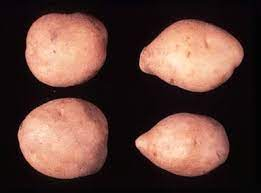Potato virus H (PVH) is a serious threat to potato crops, causing significant losses in yield and quality. In this article, we will discuss the latest data on PVH, including its symptoms, transmission, and management strategies.
As per the latest research by the United States Department of Agriculture (USDA), PVH is one of the most common viruses affecting potato crops worldwide. The virus is transmitted by aphids and through contaminated seed potatoes, and once infected, plants may display stunted growth, yellowing leaves, and reduced yield.
To manage PVH, it is essential to take preventive measures, such as using certified disease-free seed potatoes, controlling aphid populations, and practicing crop rotation. Additionally, the use of resistant cultivars is an effective way to reduce the impact of PVH on potato crops.
It is crucial for farmers, agronomists, agricultural engineers, farm owners, and scientists to stay up-to-date on the latest information regarding PVH to protect their potato crops and ensure food security for the growing population.
In conclusion, the threat of PVH to potato crops is a significant concern for the agricultural industry. By taking preventive measures and using resistant cultivars, farmers can minimize the impact of this virus on their potato crops and achieve optimal yields.
#PotatoVirusH #PVH #PotatoCrops #Agriculture #CropManagement #AphidControl #FoodSecurity #CertifiedSeedPotatoes #ResistanceCultivars







